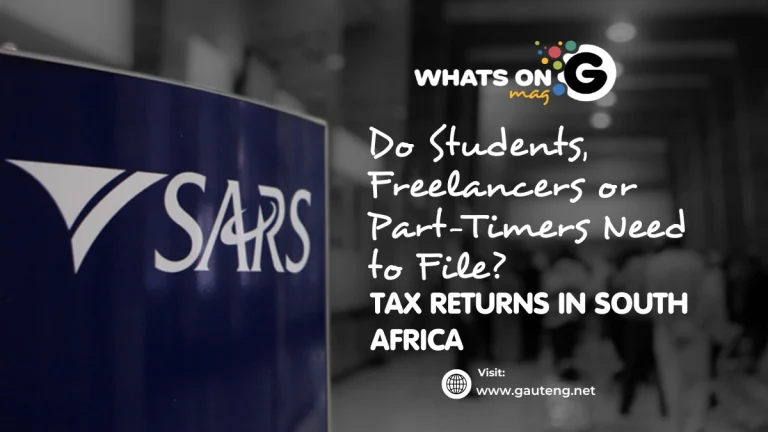Filing a tax return is a legal obligation for many South Africans, but not everyone must submit one every year. Students, freelancers, and part-time workers often wonder if they need to file. This article clarifies who must file a tax return in South Africa for the 2024/2025 tax year, based on income thresholds, types of income, and other criteria set by the South African Revenue Service (SARS).
Thank you for reading this post, don't forget to subscribe!ALSO READ: 7 Mistakes That Can Get Your SARS Tax Return Audited in 2025
When Must You File a Tax Return?
SARS requires individuals to file a tax return if they meet any one of the following conditions during the tax year:
- You are a South African tax resident and earned gross income exceeding the tax threshold based on your age:
- Under 65 years: R95,750
- Between 65 and 74 years: R148,217
- 75 years or older: R165,689
- You carried on a trade or business (including freelancing or self-employment), even if your income is below the threshold.
- You earned capital gains or losses exceeding R40,000.
- You received income from foreign sources or held foreign assets valued over R250,000 at any time during the year.
- You are a non-resident earning South African-sourced income or capital gains.
- SARS has specifically requested that you submit a tax return.
What About Students?
Many students earn income from part-time jobs, internships, or freelancing. If your total income exceeds the relevant tax threshold, you must file a return. Even if your income is below the threshold, you may want to file a return if:
- You had tax deducted (PAYE) and want to claim a refund.
- You earned income from multiple sources.
- You want to declare any scholarships or bursaries that are taxable.
Students should keep records of all income, including stipends, freelance earnings, and interest from bank accounts. Filing a return can help ensure you receive any refunds due.
Freelancers and Part-Time Workers
Freelancers and part-time workers are often classified as carrying on a trade or business. SARS requires these taxpayers to file a return regardless of income level because tax may be owed on business profits or other income.
If you earned income as a freelancer or part-timer:
- Keep accurate records of all payments received and related expenses.
- Declare all income, including cash payments.
- If you earned below the threshold but had tax deducted, filing a return can secure a refund.
SARS Filing Dates and Auto-Assessment
The 2025 tax filing season opened on 7 July 2025 for auto-assessed taxpayers and runs until 20 October 2025 for individual taxpayers who must file manually. Provisional taxpayers, including many freelancers, have until 19 January 2026.
SARS uses third-party data (from employers, banks, medical schemes) to auto-assess many taxpayers with simple tax affairs. If you qualify for auto-assessment, SARS will notify you, and you may not need to file unless you disagree with the assessment.
Summary Checklist: Do You Need to File?
- Did you earn more than R95,750 (if under 65) or the applicable threshold for your age? Yes → File
- Did you earn income from freelancing, part-time work, or business activities? Yes → File
- Did you have tax deducted and want a refund? Yes → File
- Did you earn capital gains above R40,000? Yes → File
- Did you hold foreign assets or earn foreign income? Yes → File
- Did SARS request you to file? Yes → File
Convenient Compliance
Students, freelancers, and part-time workers in South Africa must carefully assess their income and circumstances each tax year. If you meet any of SARS’s criteria, you are legally required to file a tax return. Filing ensures compliance, allows you to claim refunds, and avoids penalties. For complex situations, consulting a tax professional is advisable.
Disclaimer: This article is for informational and educational purposes only and does not constitute financial, tax, legal, or investment advice. Readers should consult a registered financial service provider (FSP) or a qualified professional registered with the Financial Sector Conduct Authority (FSCA) before making any financial decisions or tax-related actions.




